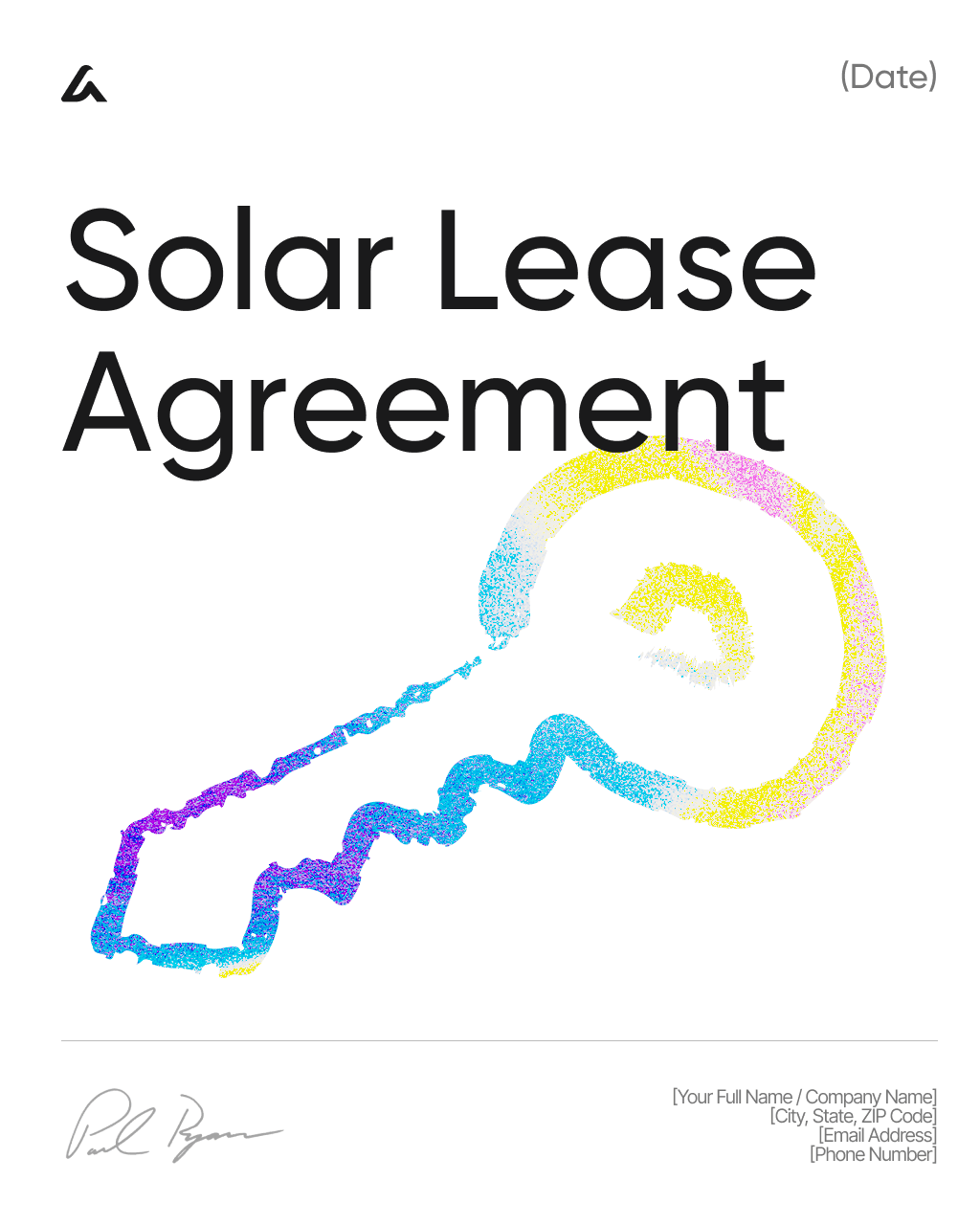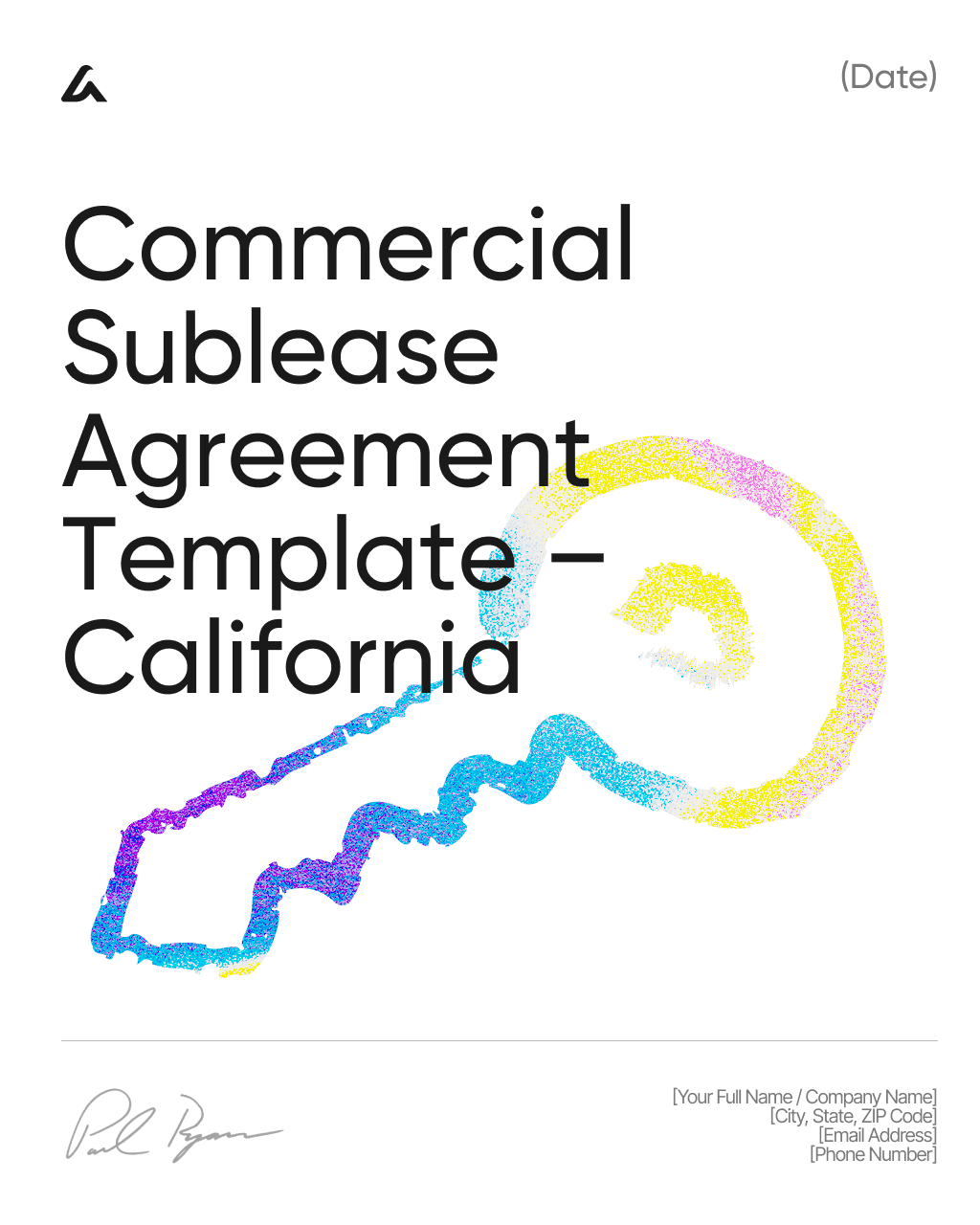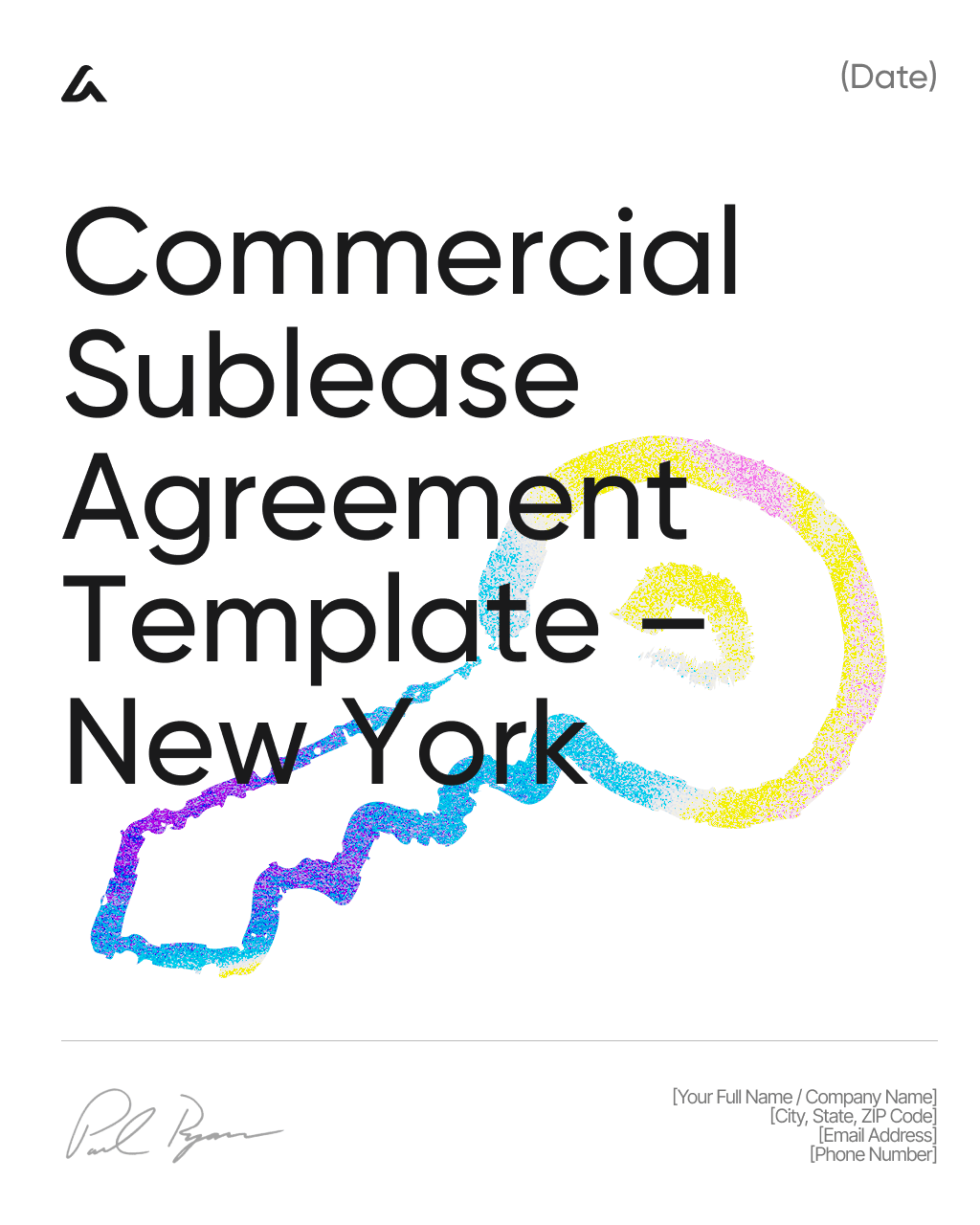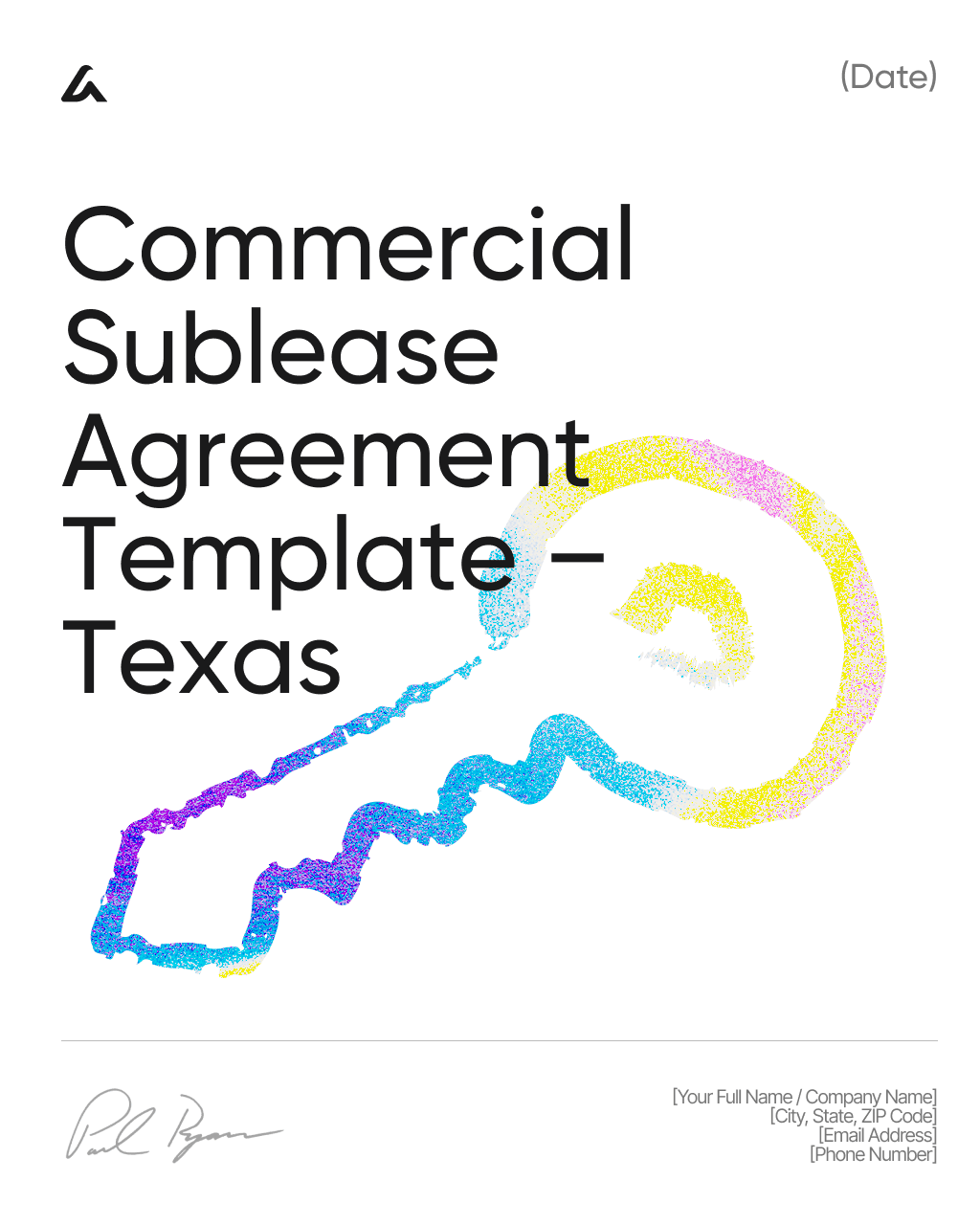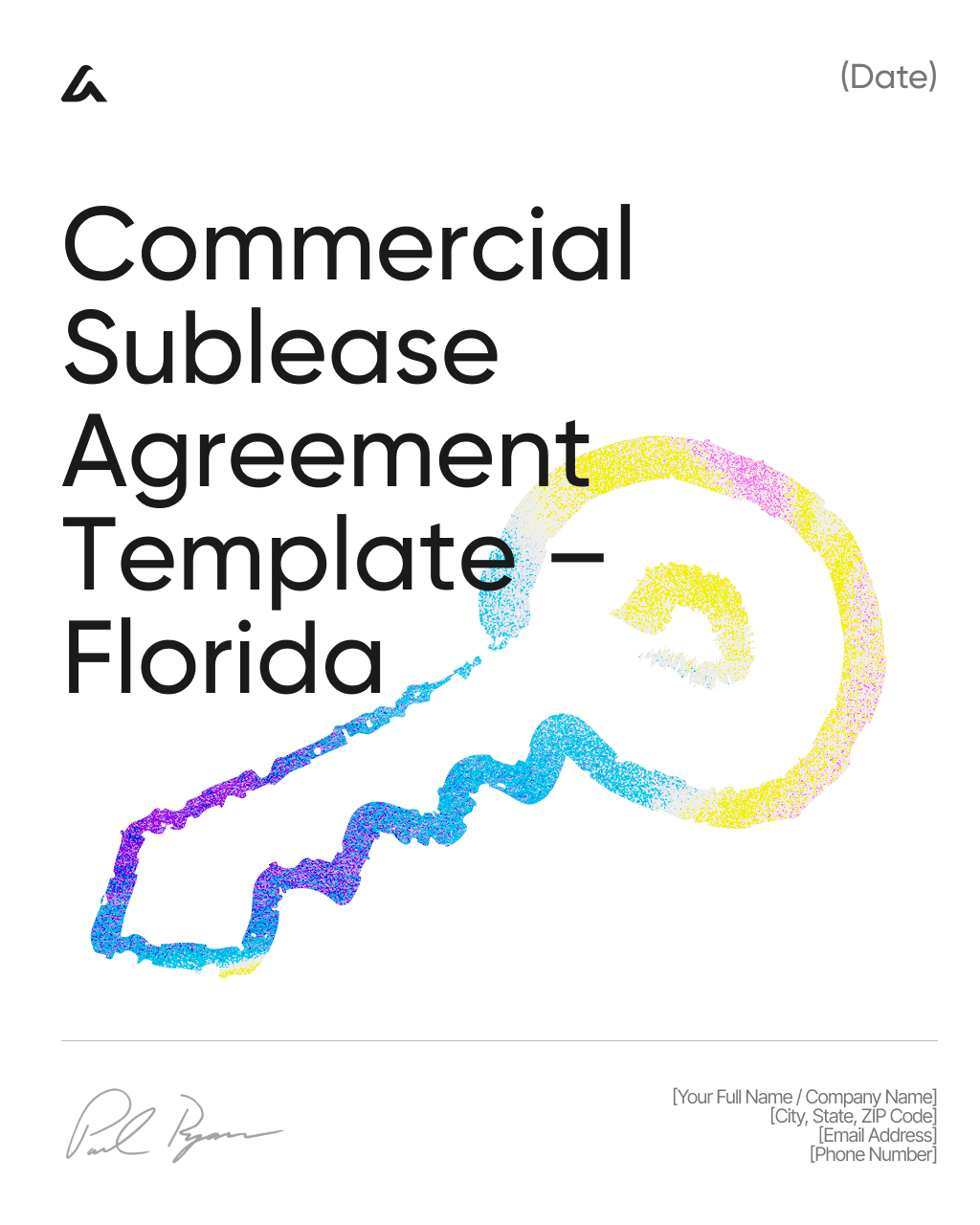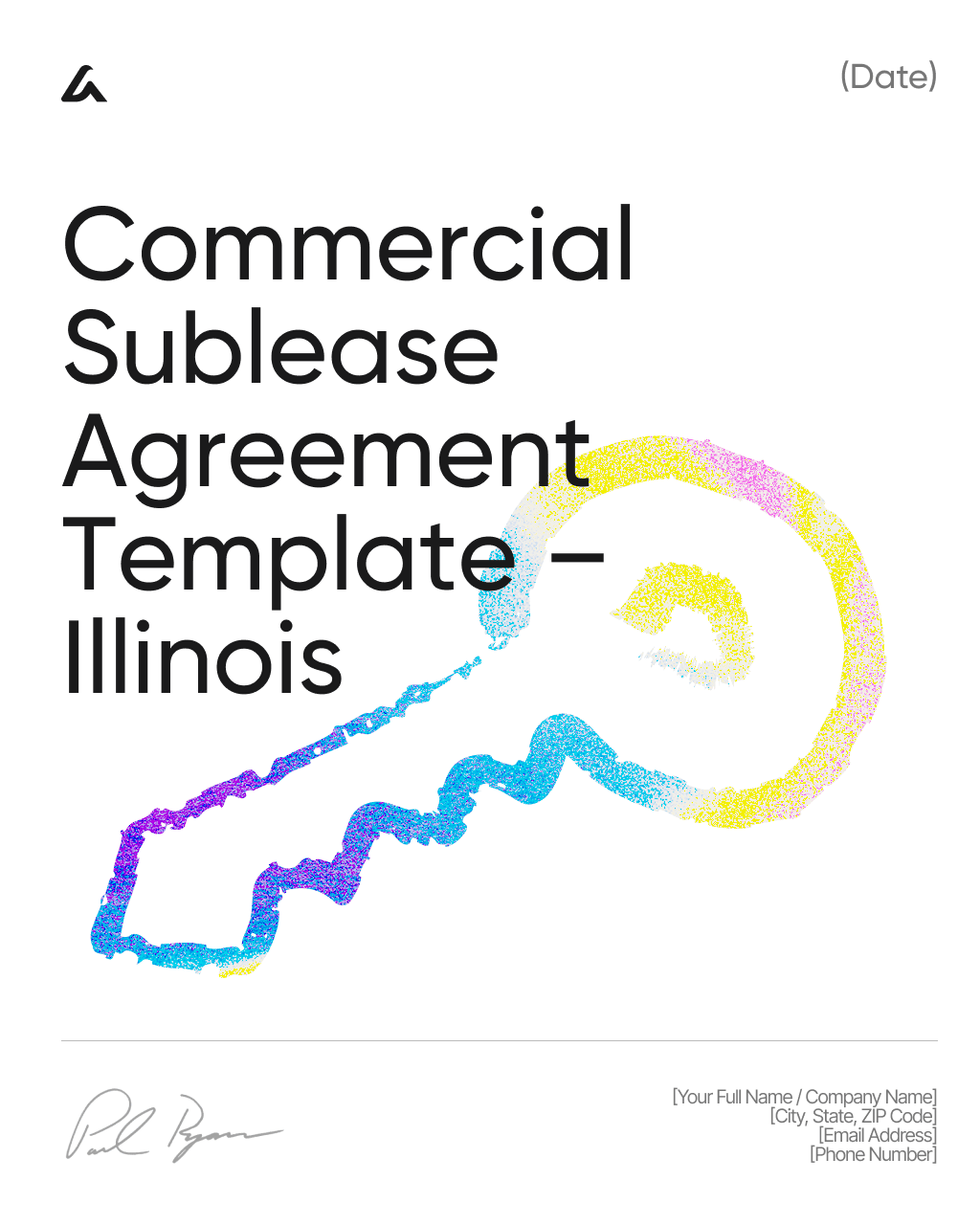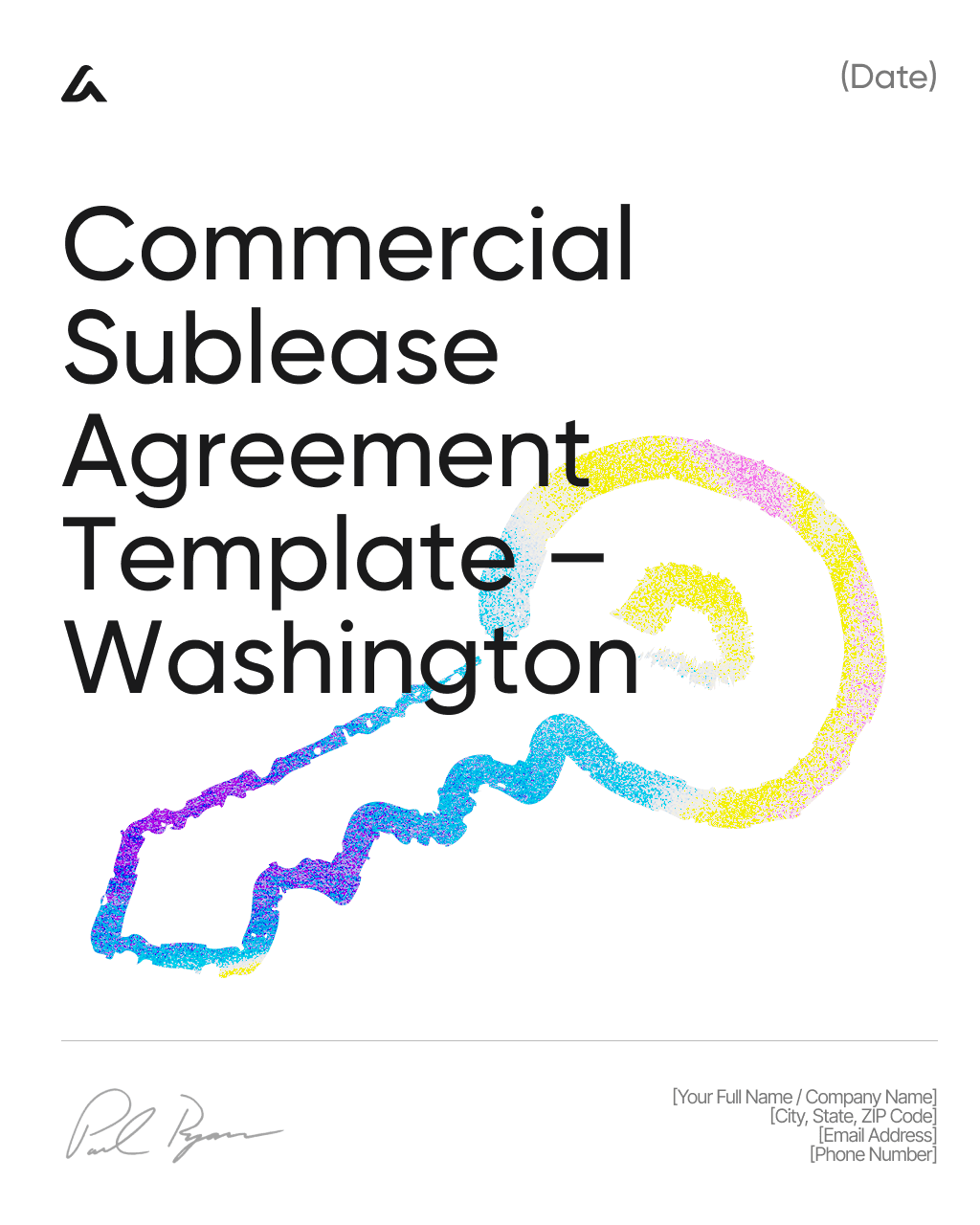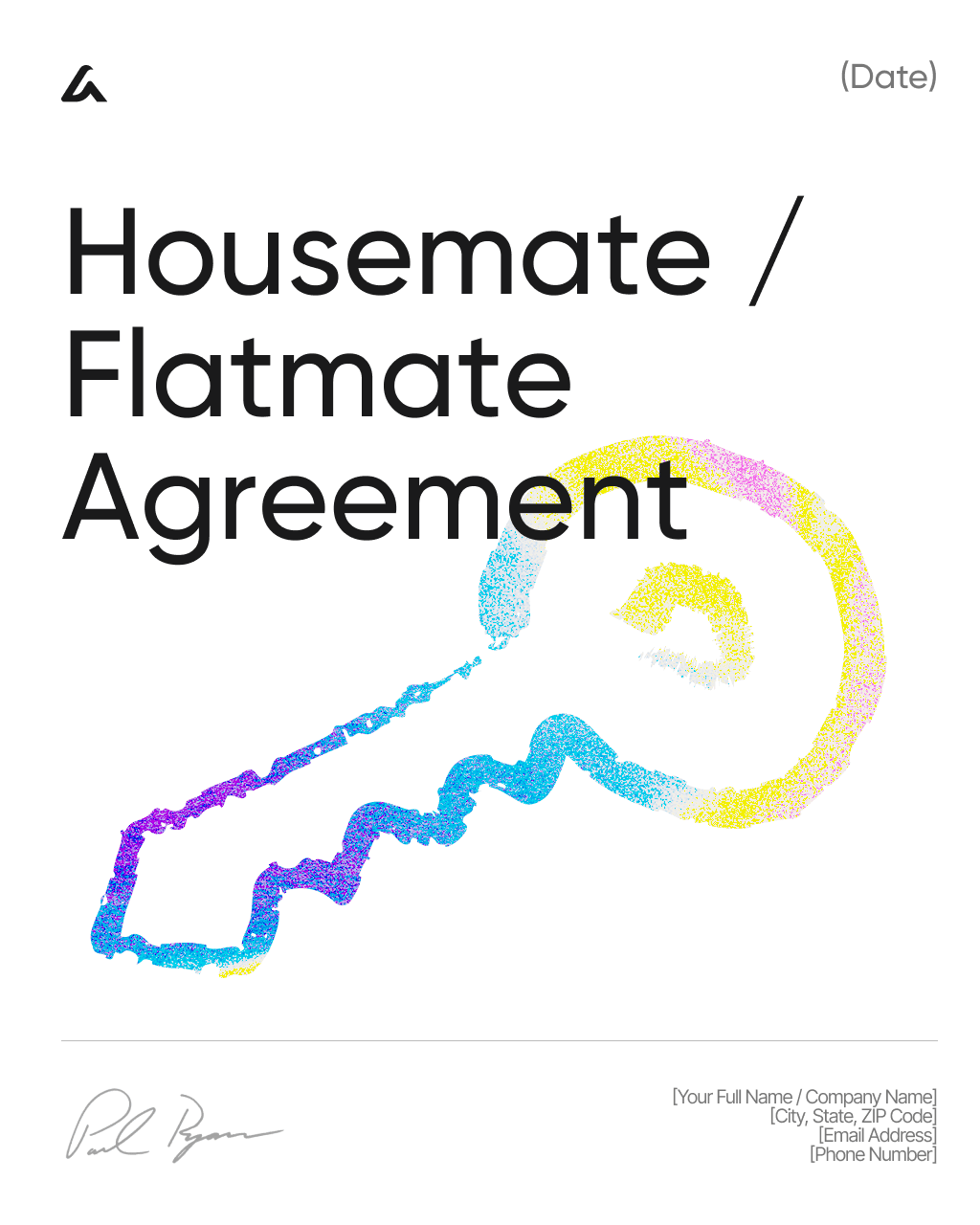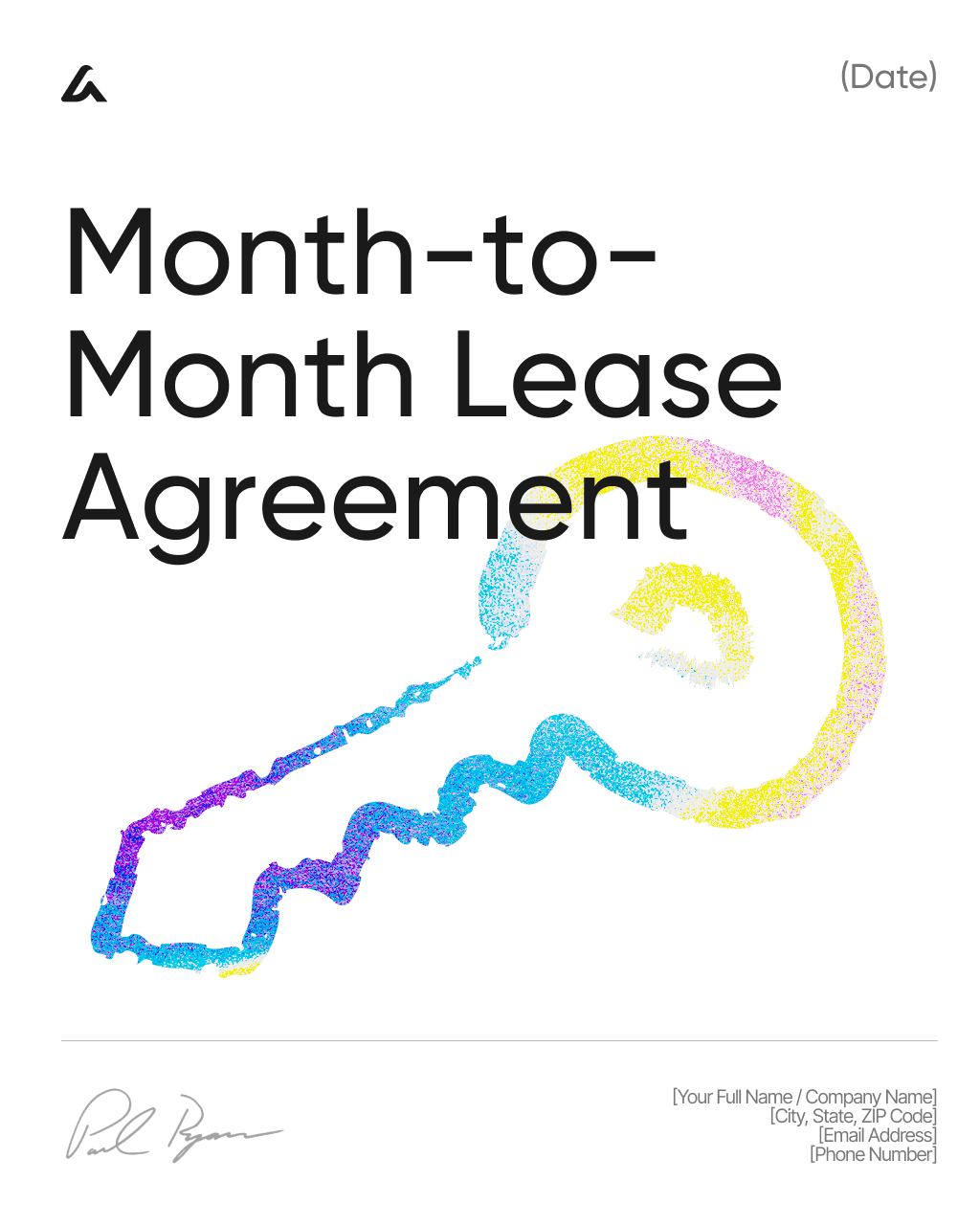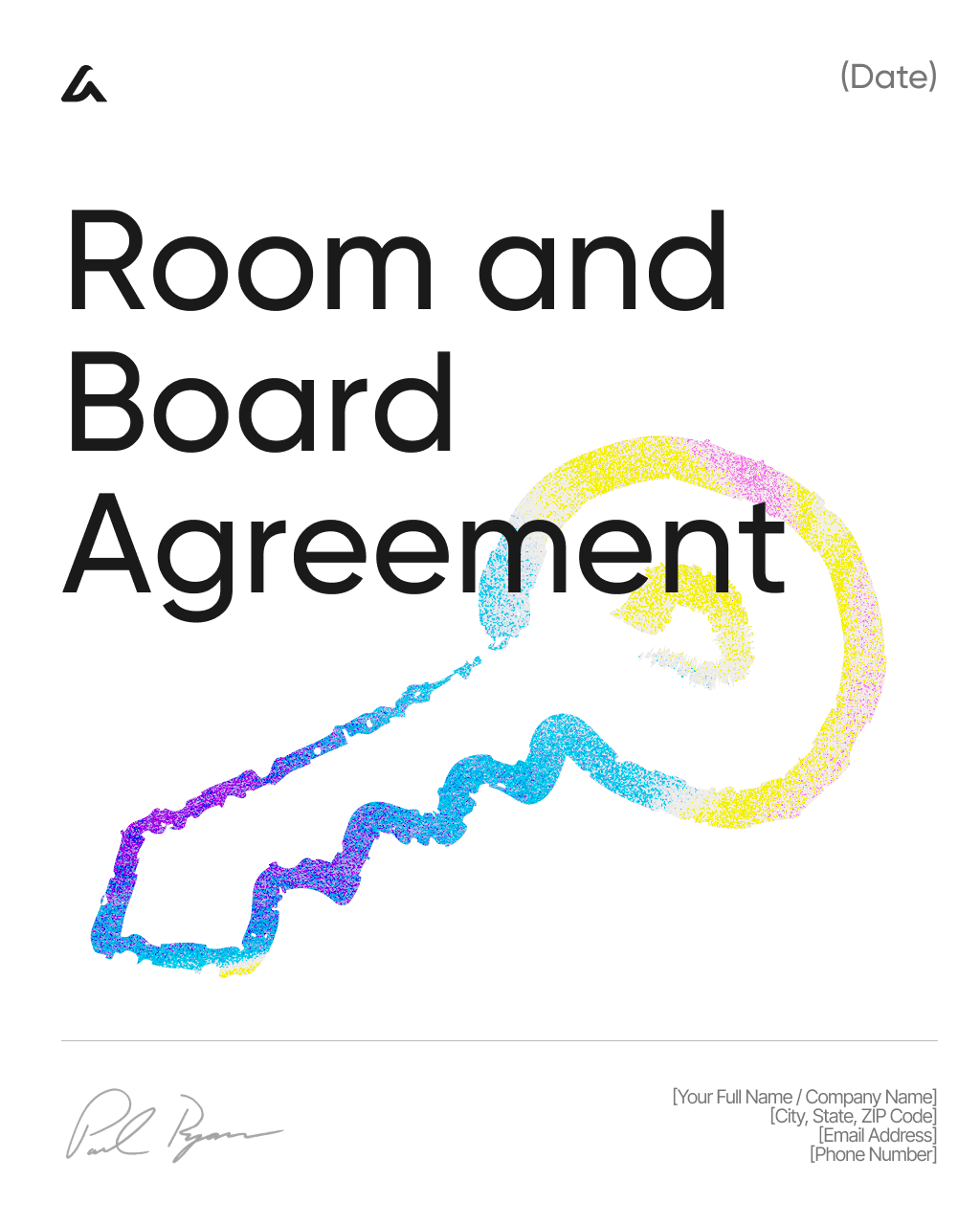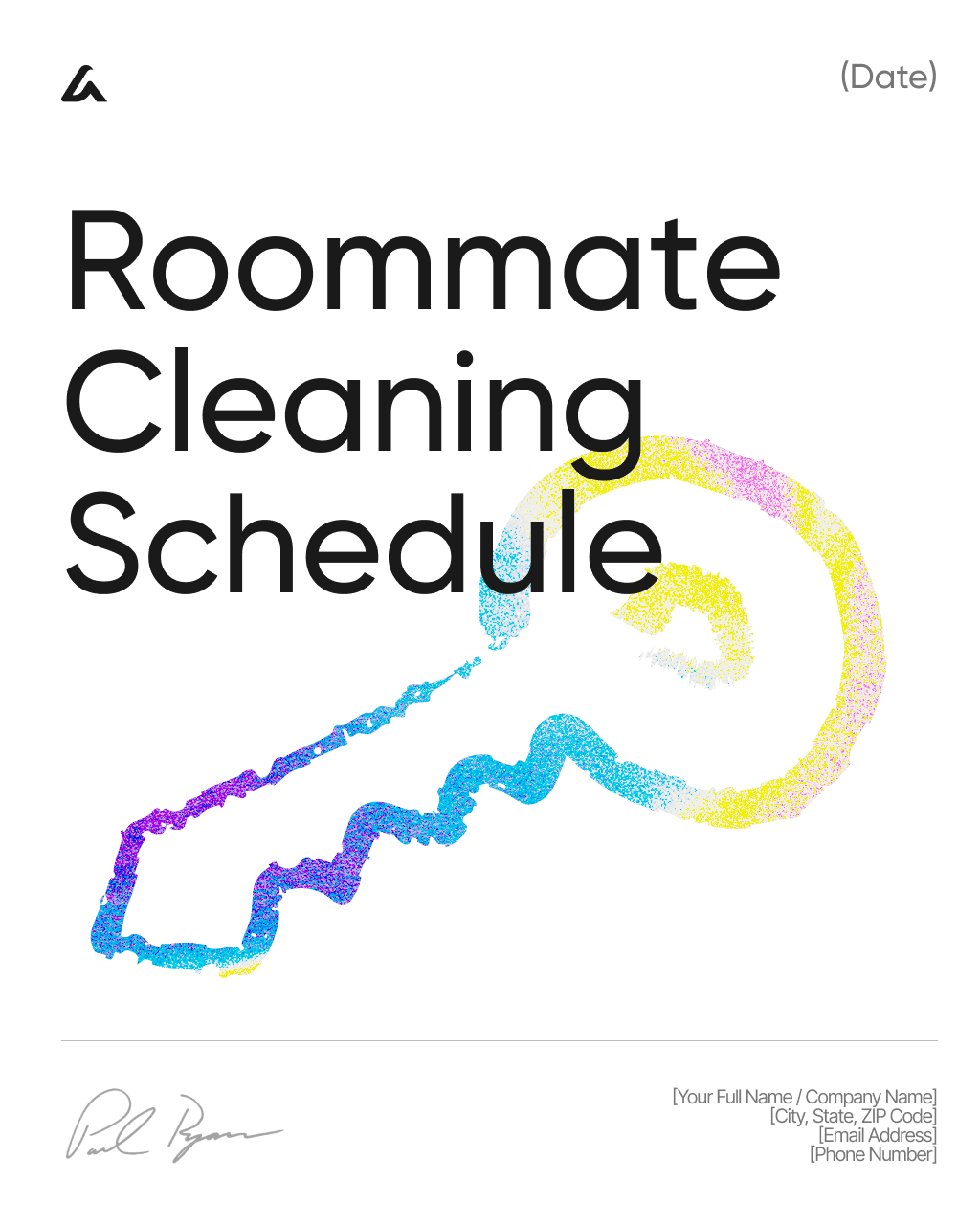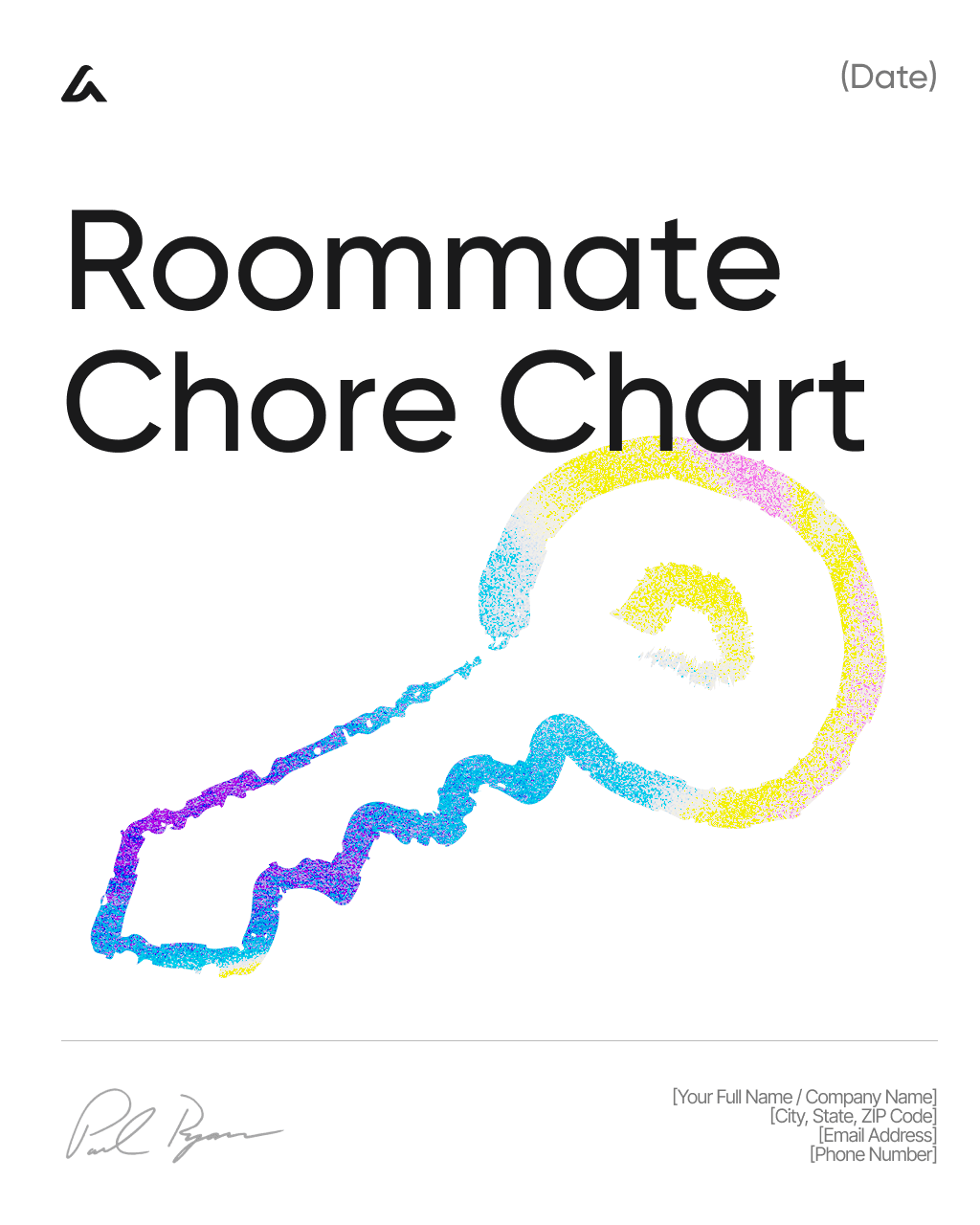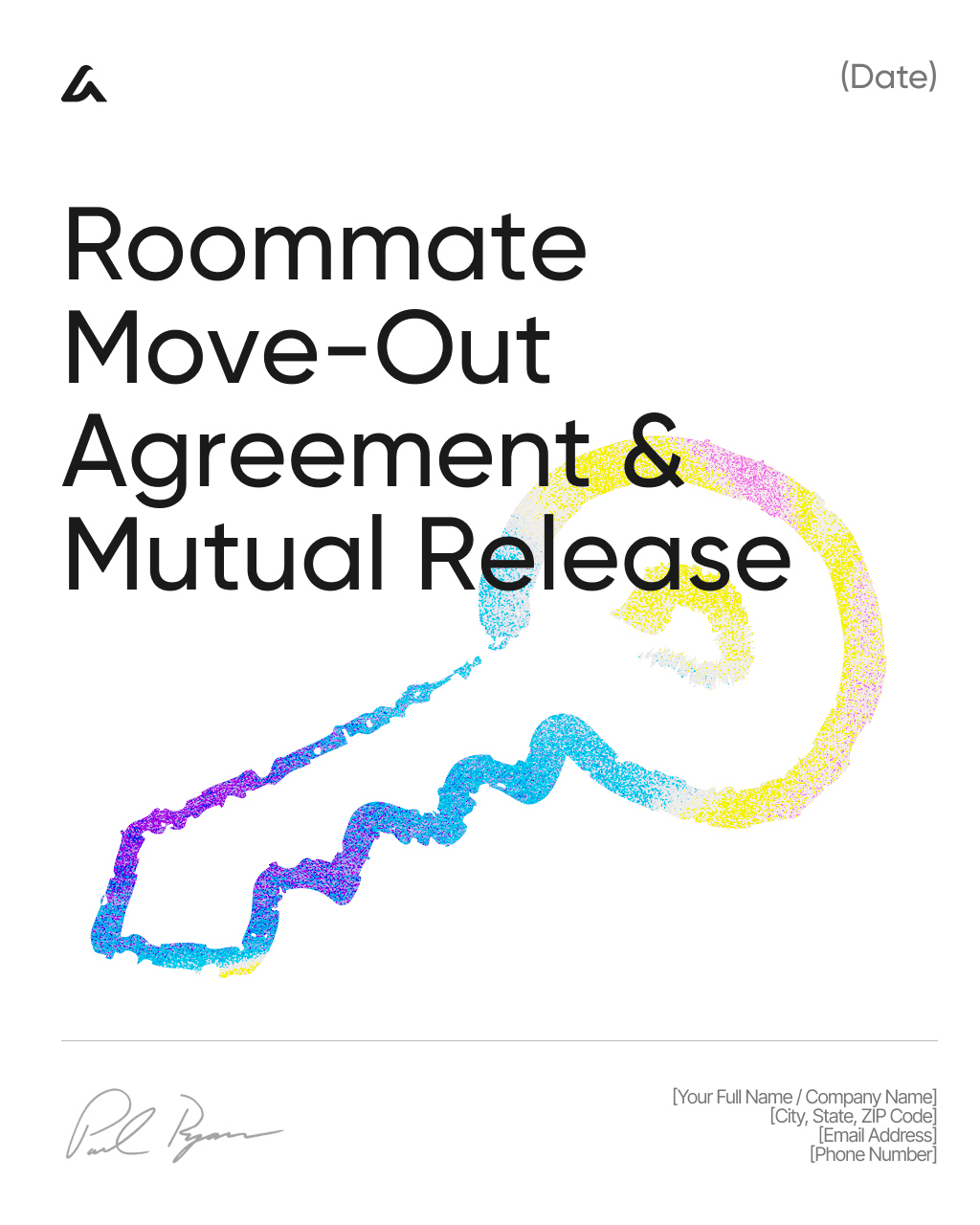Free template
Room Rental Agreement Template: Shared Housing Terms New York
Download template
Room Rental Agreement
This Room Rental Agreement ("Agreement") is entered into on [Date], by and between:
Landlord / Primary Tenant: [Full Name]
Address: [Full Property Address]
Email: [Email Address]
Phone: [Phone Number]
and
Renter: [Full Name]
Email: [Email Address]
Phone: [Phone Number]
Together referred to as the "Parties."
1. Property and Room Description
The Renter occupies a private room at [Property Address], designated [Room Identifier], within a multi‑tenant household. Room features: [window orientation / closet / furnishings]; any included furniture is listed in an attached inventory. Shared amenities may include: ☐ Kitchen ☐ Bathroom ☐ Living Room ☐ Laundry ☐ Other: [Describe].
2. Term of Agreement
The tenancy begins on [Start Date] and is either fixed‑term until [End Date] or month‑to‑month with [X] days’ written notice. Early termination, if requested, requires mutual written agreement and may involve a reasonable re‑letting or administrative fee if permitted. Check‑in and check‑out inspections with photos are recommended and may be attached.
3. Rent and Payment Terms
Monthly rent is $[Amount], due on the [Day] of each month via [Method]. A late fee of $[Amount] may apply after [X] days; communication about delays should be made before the due date when possible. Receipts or portal confirmations will serve as payment evidence.
4. Security Deposit
A deposit of $[Amount] will be held for the term and may cover unpaid amounts or excessive damage. Within [X] days after vacating, an itemized statement of deductions, if any, and a refund of the balance will be provided. Renter should share a forwarding address and preferred refund method.
5. Utilities and Expenses
Utilities are ☐ included ☐ shared. Allocation: Electricity [Equal/%], Water [Equal/%], Internet [Equal/%], Gas [Equal/%], Trash [Equal/%]. Additional recurring services (e.g., cleaning, streaming) should be documented here with cost shares: [Services/Amounts]. Overages attributable to unusual use may be reconciled with notice and documentation.
6. House Rules and Conduct
Quiet hours: [Times]; respectful use of shared spaces is expected, including cleaning after use and proper waste sorting. Guest policy: [Approval limits / frequency]; overnight guests beyond [X] nights per month require consent. Smoking indoors is prohibited; pet policy: ☐ none ☐ allowed with [Deposit/Rules].
7. Repairs and Maintenance
Report issues promptly via [Channel]; do not attempt major repairs without permission. Renter is responsible for damage caused by negligence or misuse; Landlord handles building systems and code compliance. Access for repairs will be scheduled with reasonable notice, except emergencies.
8. Shared Space Etiquette and Storage
Maintain cleanliness in common areas; any rotating schedules or shared supply funds should be recorded here: [Details]. Storage in common areas is limited to [Areas]; items must not block hallways or exits. Bikes/vehicles: [Rules/Permits/Spaces].
9. Termination and Move‑Out
Provide timely written notice and coordinate a move‑out inspection. All keys and access devices must be returned; unpaid amounts and shared utility balances will be settled within [X] days. Left items will be handled per agreed procedure and applicable law.
10. Governing Law; Entire Agreement
This Agreement is governed by [State] law and represents the Parties’ entire understanding. Modifications require written signatures of both Parties. Severability applies to any unenforceable clause without affecting the remainder.
IN WITNESS WHEREOF, the Parties have executed this Agreement as of the date first written above.
Landlord / Primary Tenant Signature
Name: ______________________
Date: ______________________
Renter Signature
Name: ______________________
Date: ______________________
Flash deal
Flash deal
Today
Today
No time to fill it up? Generate your custom agreement with AI Lawyer in seconds
What’s Included
Legal Research
Legal Research
Legal Research
Contract Drafting
Contract Drafting
Contract Drafting
Document Review
Document Review
Document Review
Risk Analytics
Risk Analytics
Risk Analytics
Citation Verification
Citation Verification
Citation Verification
Easy-to-understand jargon
Easy-to-understand jargon
Easy-to-understand jargon
Details
Learn more about
Room Rental Agreement Template: Shared Housing Terms New York
Click below for detailed info on the template.
For quick answers, scroll below to see the FAQ.
Click below for detailed info on the template.
For quick answers, scroll below to see the FAQ.
New York Room Rental Agreement FAQ
What is a Room Rental Agreement?
A Room Rental Agreement is a legally binding document between a landlord or primary tenant and a subtenant that outlines the terms for renting a single room within a larger property. Unlike a full lease, which covers the entire unit, this agreement focuses specifically on the rented room and the shared use of common areas such as the kitchen, bathroom, or living space.
It details essential information such as the rental amount, payment schedule, duration of the tenancy, and house rules. It also defines the responsibilities of both parties regarding utilities, maintenance, and behavioral expectations.
When to use a Room Rental Agreement?
A Room Rental Agreement should be used whenever a landlord or primary tenant rents out an individual room within a property rather than the entire home or apartment. This type of agreement is common in shared living arrangements, such as when roommates split rent, a tenant sublets a room with the landlord’s approval, or a homeowner rents out a spare bedroom.
It’s especially useful when you want to clearly define each person’s rights and responsibilities — including rent payments, house rules, and the use of shared spaces — to avoid misunderstandings. Having a written Room Rental Agreement provides legal protection for both parties and ensures that expectations around payment, behavior, and maintenance are transparent from the start.
What should be included in a Room Rental Agreement?
If you’re a primary tenant or property owner, your Room Rental Agreement should clearly outline the expectations and responsibilities of both parties.
A well-written agreement helps prevent disputes and ensures a smooth living arrangement. At minimum, it should include:
Tenant and subtenant information: Full names and contact details of both parties.
Property address: The full address and a description of the rented space.
Room details: Size, furnishings, and any special conditions or restrictions.
Rental duration: Specify whether the agreement is month-to-month, weekly, or fixed-term.
Rent and payment terms: State the rent amount, due date, and accepted payment methods.
Security deposit and late fees: Include the deposit amount and outline any penalties for late payments.
Utilities: Explain how utility costs will be divided or included in the rent.
House rules: Cover noise limits, guest policies, smoking rules, and shared space use.
Chores and maintenance: Define who handles cleaning, repairs, and emergency maintenance.
Termination notice: Specify the notice period (usually 30 days) for ending the rental.
Insurance: Indicate if the tenant or subtenant must have renter’s insurance for personal belongings.
Furniture and amenities: List any provided furniture, appliances, or extras (e.g., parking, storage).
Signatures and date: Both parties must sign and date the agreement to make it legally binding.
Including these key elements ensures your Room Rental Agreement is clear, enforceable, and fair for everyone involved.
Can a Room Rental Agreement be changed after signing?
Yes, a Room Rental Agreement can be changed after signing, but only if both parties agree to the new terms. Any modifications — such as changes in rent amount, duration, or responsibilities — should be made in writing and signed by both the landlord (or primary tenant) and the renter to be legally valid.
Verbal agreements or informal promises are generally not enforceable, so it’s best to document every change clearly. In most cases, an amendment or addendum is attached to the original agreement, outlining exactly what was updated while leaving the rest of the contract unchanged. This ensures that all terms remain transparent and protects both parties from future disputes.
Can a landlord enter the rented room without notice in New York?
In New York, a landlord cannot enter a rented room or unit without proper notice, except in emergencies.
Under New York State law, landlords must provide reasonable advance notice — typically at least 24 hours — before entering the property for non-emergency reasons such as inspections, repairs, or maintenance. Emergency situations (for example, fire, flooding, or a gas leak) are the only exceptions when a landlord may enter without notice to protect life or property.
Unannounced or repeated entries without valid reason can be considered harassment or a violation of tenant privacy rights. To avoid disputes, both parties should include clear entry terms in the Room Rental Agreement, specifying notice requirements and acceptable reasons for access.
Similar templates
Other templates from
Lease Agreement
Money back guarantee
Free trial
Cancel anytime
AI Lawyer protects
your rights and wallet
Money back guarantee
Free trial
Cancel anytime
AI Lawyer protects
your rights and wallet
Money back guarantee
Free trial
Cancel anytime
AI Lawyer protects
your rights and wallet
Money back guarantee
Free trial
Cancel anytime





















































































































